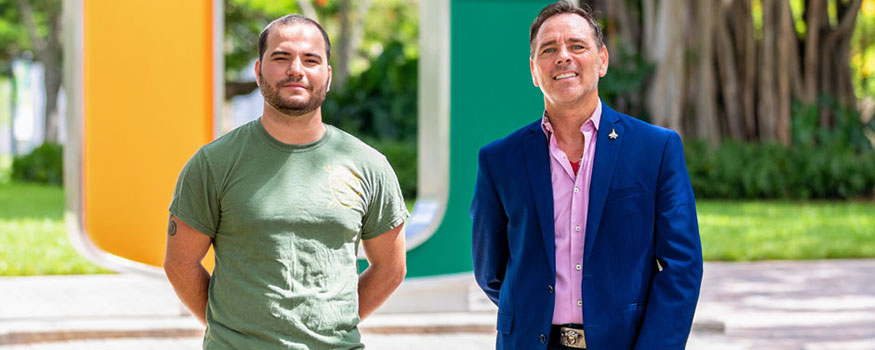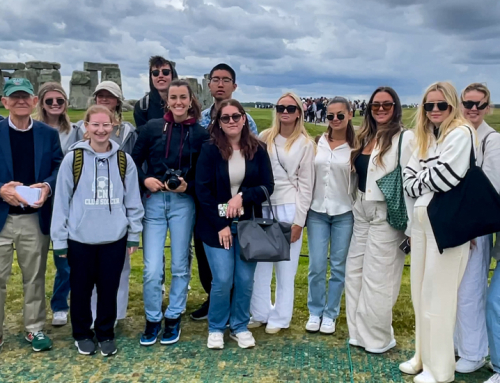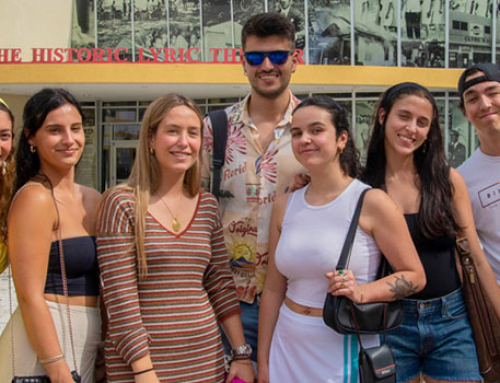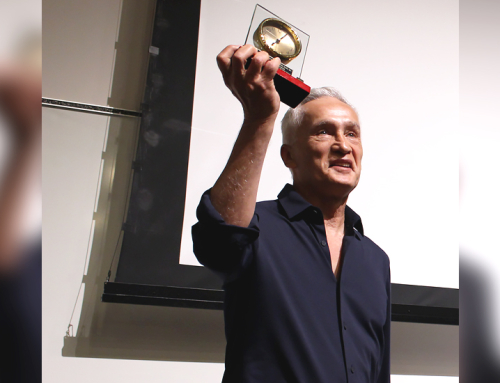By: Jenny Hudak
In the wake of the United States’ final departure from Afghanistan after two decades of war, Jack Miller—a faculty member in the School of Communication, Air Force veteran who served in Afghanistan, and advisor to the Veteran Students Organization (VSO)—reflects on the crisis. Zachary Danney, president of the VSO, says that watching events unfold has been very difficult for veteran students.
As Jack Miller watched the rapid collapse of Afghanistan unfold recently—including the striking video of Afghans clasping onto a departing American military transport jet—his phone began to buzz with messages from his Afghan friends and their families, most of whom he met while serving in Afghanistan, desperate for aid.
“People started messaging me they were hiding from the Taliban, pleading for my help. Watching that flight take off struck a chord. It was gut-wrenching,” said Miller, assistant professor of professional practice in the University of Miami School of Communication who served two tours in Afghanistan from 2009 to 2010. “I lost friends there. I had an extreme flood of emotions watching it transpire.”
Miller served as a public relations officer in the United States Air Force from 1992 to 2014. While in Afghanistan, he worked as an advisor to Afghan President Hamid Karzai and the Afghan ministers during the largest U.S. troop deployments of the war. But as part of his role, Miller also worked closely with Afghan interpreters and civilians—an experience, he said, that has made him keenly aware of what’s at stake as the United States made its final flight out of Kabul on Monday afternoon following more than 20 years of military engagement in Iraq and Afghanistan. The evacuation came as President Joe Biden warned that staying longer in the beleaguered nation carries serious risks for foreign troops and civilians.
Like others, Miller is concerned about the swift fall of the previous democratic government and apprehensive about the fate of the Afghan civilians who remain.
After returning from his last tour in Afghanistan, Miller served under the U.S. secretary of defense as an advisor on Middle East policy in 2011. He sees similarities now between how the United States left Afghanistan and how the troops withdrew from Iraq.
“When we left Iraq without a status of forces agreement, we handed over everything we had to them,” Miller explained. “We were at the mercy of Iraq, and we created what’s called a power vacuum.” Without a U.S. military presence, Miller added, the pullback gave impetus to the rapid rise of the Islamic State of Iraq and Syria, also known as ISIS.
Now that U.S. troops made their final departure from Afghanistan on Monday, Miller worries about the rise of the Islamic State Khorasan, known as ISIS-K, a regional affiliate of the Islamic State. On Thursday, the attack near Hamid Karzai International Airport in Kabul, Afghanistan, killed 13 U.S. service members and at least 170 others. ISIS-K claimed responsibility for the attack.
The most recent bombing left Miller in anguish, describing the attack as inexcusable and utterly devastating to U.S. service members and citizens. Still, he believes U.S. troops should “hold their heads high.”
“It is incredibly unfortunate for all of us,” he said. “A lot of young men and women went there and, like myself, lost friends,” he said. “They gave their lives, their limbs, in some cases their mental stability. But they did exactly as their leaders told them to, and they gave everything they could.”
In addition to his role in the School of Communication, Miller serves as an advisor to the Veteran Students Organization (VSO).
Zachary Danney, a senior studying human resources management, was a sergeant in the U.S. Marine Corps from 2013 to 2018 before enrolling in the University. Now he champions for veteran students on campus as the president of the VSO.
Danney, who was never deployed to the region, said watching the crisis in Afghanistan, particularly for veteran students who served in Afghanistan, has been incredibly difficult. He hopes he can help on-campus veterans navigate the unique hardships they face while attending college.
“The Veteran Students Organization serves not only as a space for military-connected students to socialize and connect, but also as a resource for these students to navigate through these challenges inside and outside of the classroom,” he said. “We are committed to inclusivity and community as we are composed of veterans, civilians who have compassion for veterans, active-duty service members, reservists, and more.”
Danney and Miller both expressed their support for troops and fellow veterans who may feel helpless.
“They should be proud of what they achieved as service members in Afghanistan and what they did for the people of Afghanistan,” Miller added. “I could see where some veterans have a sense of helplessness, but I think veterans can be very strong and can persevere. I hope they understand that what unfolded in Afghanistan in the last few weeks is not a reflection of them.”
For more information on veteran resources on campus, visit Veterans Services. To learn more about the Veteran Students Organization, follow them on their Instagram page.
This article originally appeared at https://news.miami.edu/stories/2021/09/veteran-reflects-on-the-us-withdrawal-from-afghanistan.html.







